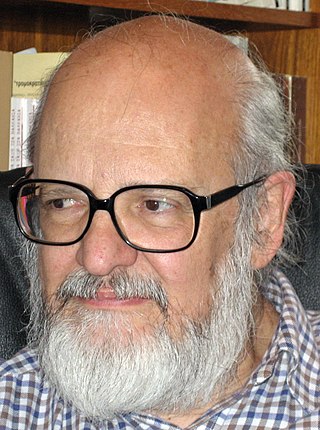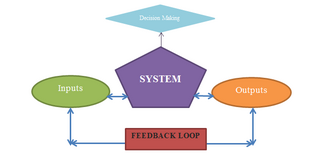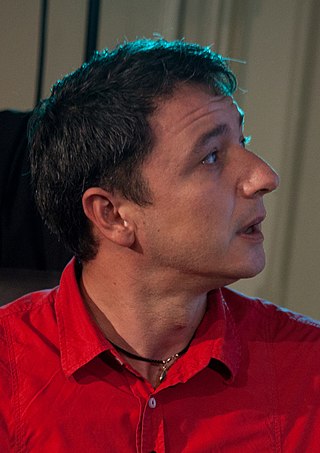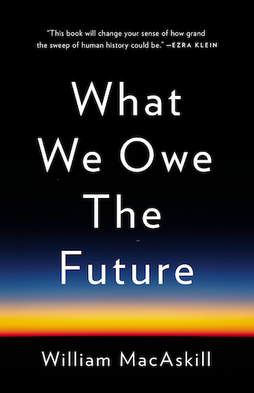
Pessimism is a negative mental attitude in which an undesirable outcome is anticipated from a given situation. Pessimists tend to focus on the negatives of life in general. A common question asked to test for pessimism is "Is the glass half empty or half full?"; in this situation, a pessimist is said to see the glass as half empty, or in extreme cases completely empty, while an optimist is said to see the glass as half full. Throughout history, the pessimistic disposition has had effects on all major areas of thinking.
David Courtney Boyle is a British author and journalist who writes mainly about history and new ideas in economics, money, business, and culture. He lives in Steyning in West Sussex. He conducted an independent review for the Treasury and the Cabinet Office on public demand for choice in public services which reported in 2013. He is co-founder and policy director of Radix, which he characterized in 2017 as a radical centrist think tank. He is also co-director of the mutual think tank New Weather Institute.
William Harold Greider was an American journalist and author who wrote primarily about economics.

Lester Russel Brown is an American environmental analyst, founder of the Worldwatch Institute, and founder and former president of the Earth Policy Institute, a nonprofit research organization based in Washington, D.C. BBC Radio commentator Peter Day referred to him as "one of the great pioneer environmentalists."

Takis Fotopoulos is a Greek political philosopher, economist and writer who founded the Inclusive Democracy movement, aiming at a synthesis of classical democracy with libertarian socialism and the radical currents in the new social movements. He is an academic, and has written many books and over 900 articles,. He is the editor of The International Journal of Inclusive Democracy and is the author of Towards An Inclusive Democracy (1997) in which the foundations of the Inclusive Democracy project were set. His latest book is The New World Order in Action: Volume 1: Globalization, the Brexit Revolution and the "Left"- Towards a Democratic Community of Sovereign Nations. Fotopoulos is Greek and lives in London.
Worldchanging was a nonprofit online publisher that operated from 2003 to 2010. Its strapline was A bright green future. It published newsletters and books about sustainability, bright green environmentalism, futurism and social innovation.
Carbon rationing, as a means of reducing CO2 emissions to contain climate change, could take any of several forms. One of them, personal carbon trading, is the generic term for a number of proposed emissions trading schemes under which emissions credits would be allocated to adult individuals on a (broadly) equal per capita basis, within national carbon budgets. Individuals then surrender these credits when buying fuel or electricity. Individuals wanting or needing to emit at a level above that permitted by their initial allocation would be able to purchase additional credits in the personal carbon market from those using less, creating a profit for those individuals who emit at a level below that permitted by their initial allocation.
TEQs is a proposal for a national emissions and energy trading scheme that includes personal carbon trading as a central element. It is the subject of significant interest from the UK Government, and is explicitly designed to address both climate change and peak oil.

David Fleming was an economist, cultural historian and writer on environmental issues, based in London.

Regenerative design is an approach to designing systems or solutions that aims to work with or mimic natural ecosystem processes for returning energy from less usable to more usable forms. Regenerative design uses whole systems thinking to create resilient and equitable systems that integrate the needs of society with the integrity of nature. Regenerative design is an active topic of discussion in engineering, landscape design, food systems, and community development.

The terms transition town, transition initiative and transition model refer to grassroot community projects that aim to increase self-sufficiency to reduce the potential effects of peak oil, climate destruction, and economic instabilitythrough renewed localization strategies, especially around food production and energy usage. In 2006, the founding of Transition Town Totnes in the United Kingdom became an inspiration for other groups to form. The Transition Network charity was founded in early 2007, to support these projects. A number of the groups are officially registered with the Transition Network. Transition initiatives have been started in locations around the world, with many located in the United Kingdom and others in Europe, North America and Australia. While the aims remain the same, Transition initiatives' solutions are specific depending on the characteristics of the local area.

In England and Wales, a public school is a type of fee-charging private school originally for older boys. They are "public" in the sense of being open to pupils irrespective of locality, denomination or paternal trade or profession, nor are they run for the profit of a private owner.

Mark Boyle, also known as The Moneyless Man, is an Irish writer best known for living without money from November 2008, and for living without modern technology since 2016. Boyle writes regularly for the British newspaper The Guardian, and has written about his experiences in a couple of books. His first book, The Moneyless Man: A Year of Freeconomic Living, was published in 2010. His fourth book, The Way Home: Tales from a life without technology, was published in 2019. Boyle lives near Loughrea, in the west of Ireland.

William Paul Cockshott is a Scottish academic in the fields of computer science and Marxist economics. He is a Reader at the University of Glasgow. Since 1993 he has authored multiple works in the tradition of scientific socialism, most notably Towards a New Socialism and How the World Works.
A moneyless economy or non-monetary economy is a system for the allocation of goods and services as well as for the assignment of work without payment of money. The simplest example is the family household, which can be a system of obligations nevertheless.

William David MacAskill is a Scottish philosopher and author, as well as one of the originators of the effective altruism movement. He is an associate professor in Philosophy and Research Fellow at the Global Priorities Institute at the University of Oxford and Director of the Forethought Foundation for Global Priorities Research. He co-founded Giving What We Can, the Centre for Effective Altruism and 80,000 Hours, and is the author of Doing Good Better (2015) and What We Owe the Future (2022) and the co-author of Moral Uncertainty (2020).

Dario Tamburrano is an Italian environmental activist and one of the first members of the Five Star Movement elected in the European Parliament.

Trekonomics: The Economics of Star Trek is a 2016 book by French economist Manu Saadia. The book deals with the topic of the scarcity in the economy by looking at it in reverse. The author describes the 24th-century Star Trek universe in which scarcity does not exist at all. The book explores a post-scarcity age and how our society would need to change to adapt itself to such an environment. It looks at the expectations regarding automation and artificial intelligence and takes readers through a journey of the fictional, moneyless world of Star Trek. It also looks at the challenges to the Star Trek economy.
Thomas Charles Rivett-Carnac is a former political strategist for the United Nations Framework Convention on Climate Change. He is also an author on climate change policy, a podcaster and an advisor to corporations and governments on climate solutions.

What We Owe the Future is a 2022 book by the Scottish philosopher and ethicist William MacAskill, an associate professor in philosophy at the University of Oxford. It argues for effective altruism and the philosophy of longtermism, which MacAskill defines as "the idea that positively influencing the long-term future is a key moral priority of our time."













